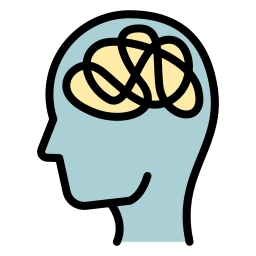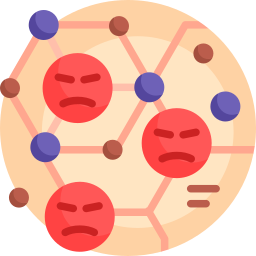GLOSSARY
C
Cannon-Bard Theory of Emotion
A theory of emotions developed by Water Cannon and Phillip Bard that claims that autonomic feedback is not necessary for emotional feelings. Rather, feelings and physiological responses are independent components of (...)


Catharsis
The word catharsis comes from the Greek word katharsis, which literally translated means a cleansing or purging. According to catharsis theory, acting aggressively or even viewing aggression is an effective way to purge angry and (...)


Character Strengths
Personality traits that reflect our personal identity, produces positive outcomes for ourselves and others, and contributes to well-being.


Chatter
Cyclical, negative thoughts and emotions that turn one’s capacity for introspection and self-reflection into a curse rather than a blessing.


Cheerfulness
An individual’s actual (as a mood state) or habitual (as a trait or temperament) disposition for amusement and laughter including seeing the bright side of life and taking adversity less seriously.


Circumplex Model of Emotion
The circumplex model [of emotion] focuses on determining how traits and emotions are structurally similar, and its underlying assumption is that a relatively seamless circular ordering, or circumplex, is an economical description of the relations among traits and emotions.


Coaching with Compassion
Helping others in their intentional change process (i.e., achieving their dreams or aspirations or changing the way they think, feel, and act). Coaching others for their development is different than coaching others strictly for the organization’s benefit. The latter can be seen as an(...)


Cognitive Reappraisal
An emotion regulation strategy that involves changing the meaning of emotions, to alter its emotional impact.


Cognitive-Mediational Theory
In regards to stress, the theory suggests that what causes stress reaction is not the environmental “stressor” alone but also its significance as appraised by the person who encounters it.


Cognitive-Neoassocianistic Model (CNA)
A model that proposes that a wide variety of unpleasant feelings and experience of negative affect can lead to the development of angry feelings and display of emotional aggression. Negative affect activates ideas, memories and (...)


Communication Apprehension
The feelings of shyness, embarrassment, and anxiousness faced in situations where some form of communication is required. Communication apprehension can also be defined as the anxious anticipation of experiencing embarrassment that is sometimes felt during public speaking.


Compassion
The feeling that arises in witnessing another’s suffering and that motivates a subsequent desire to help.


Compassion Fatigue
A state of tension and preoccupation with the traumatized patients by re-experiencing the traumatic events, avoidance/numbing of reminders persistent arousal (e.g., anxiety) associated with the patient. It is a function of bearing witness to the suffering of others.


Compersion
Joy felt because of the happiness of another, i.e., second-hand joy. Sometimes considered the antithesis of jealousy.


Confusion
An emotion that involves appraising an event as new, complex, or unexpected; unlike interest, it (confusion) involves further appraising the target as hard to understand and probably incomprehensible.


Contempt
An emotion that will often be triggered by violations of the ethics of community (namely, respect, duty and/or hierarchy). An emotion characterized by short-term derogation of a target, and is likely to develop into long-term rejection, with the goal of socially excluding this other person.(...)


Contentment
An emotion experienced resulting from appraising a situation as enough and entire. The appraisal theme of this emotion is perceived completeness.


Cortisol
A steroid hormone released by the adrenal gland as part of the HPA axis in response to prolonged stress, via mobilization of energy reserves & immunity suppression.


Courage
The voluntary willingness to act, with or without varying levels of fear, in response to a threat to achieve an important, perhaps moral, outcome or goal.


Curiosity
A form of cognitively-induced deprivation that arises from the perception of a gap in knowledge or understanding.


Cyberchondria
A pattern of excessive and repetitive internet-symptom-checking behaviour that leads to anxiety and distress.




Cynicism
A general sense of distrust of human nature and motives. This attitude can be a form of healthy and inquisitive skepticism, serving a protective reflex against negative responses such as humiliation.
